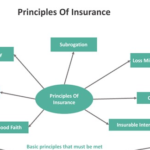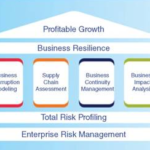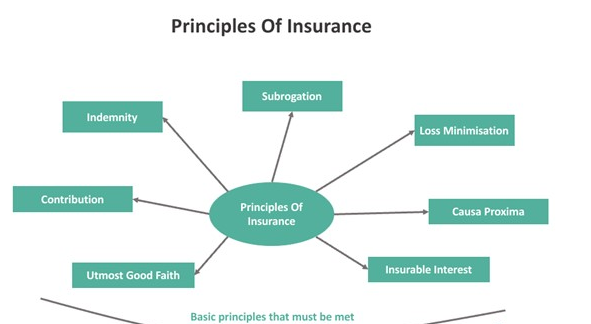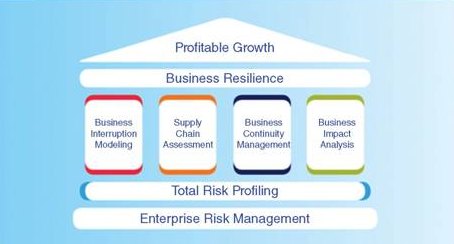Homeowners insurance is a crucial aspect of protecting your investment in your home. It provides financial security in the event of damage, theft, or other unforeseen circumstances. However, the cost of homeowners insurance can be a significant burden, especially if you’re unaware of the many ways you can reduce your premiums. Whether you’re a new homeowner or have had insurance for years, understanding the strategies to lower your homeowners insurance costs can help you save money without compromising coverage.
In this article, we’ll explore various methods that can help reduce your homeowners insurance costs, from adjusting your coverage options to making your home safer and shopping for better deals.
1. Shop Around and Compare Quotes
One of the most effective ways to lower your homeowners insurance premium is to shop around. Insurance companies offer different rates and discounts, and the variance between companies can be substantial. Here’s what you can do:
- Request Multiple Quotes: Contact several insurance providers and request quotes. Be sure to provide the same information to each company for an accurate comparison. This helps you gauge the market rate and identify insurers offering better deals.
- Use Online Comparison Tools: There are several online platforms that allow you to compare insurance quotes from various companies in real time. These tools make it easier to find competitive rates without contacting each company individually.
- Review Customer Service and Claims Handling: Don’t just focus on price. Look at customer reviews and claims-handling efficiency. Sometimes paying slightly more for a company with excellent customer service and a smooth claims process can save you stress and money in the long run.
2. Increase Your Deductible
Your deductible is the amount you agree to pay out-of-pocket before your insurance coverage kicks in after a claim. Increasing your deductible can significantly lower your insurance premium. Here’s how it works:
- Higher Deductible, Lower Premium: By choosing a higher deductible, such as $1,000 or $2,500 instead of $500, you can often reduce your premiums by 10% to 30%. Insurers view higher deductibles as a sign that you’re less likely to file small claims, which reduces their risk.
- Be Cautious with Extremely High Deductibles: While a higher deductible can save money on premiums, make sure you can afford to pay it if you need to file a claim. Striking a balance between saving on premiums and ensuring financial security is crucial.
3. Bundle Your Policies
Many insurance companies offer discounts if you purchase multiple policies from them. Bundling homeowners insurance with other types of insurance, such as auto or life insurance, can result in significant savings.
- Multi-Policy Discount: Most insurers provide a multi-policy discount that ranges from 5% to 25% off your homeowners insurance premium when you bundle. This makes it easier to manage your insurance plans and save on both.
- Simplified Management: Bundling with one provider also simplifies managing your insurance policies, as you deal with a single company for all your insurance needs, and it can often result in added perks like single billing or streamlined customer service.
4. Improve Your Home Security
Making your home more secure can not only provide peace of mind but also lower your homeowners insurance premiums. Insurance companies often offer discounts to homeowners who invest in security measures that reduce the risk of theft or damage. Consider the following upgrades:
- Install a Security System: Installing a burglar alarm system that alerts the police or a security company can lead to a significant discount on your premium. The more advanced the system (e.g., surveillance cameras, motion detectors), the greater the potential savings.
- Smoke and Carbon Monoxide Detectors: Insurers appreciate homes equipped with smoke detectors, carbon monoxide detectors, and fire extinguishers because they lower the risk of damage or injury. Installing these devices can qualify you for a discount.
- Deadbolts and Reinforced Doors: Simple upgrades like installing deadbolt locks, reinforcing doors, or adding window locks can also reduce premiums. Insurance companies reward homeowners who take steps to prevent break-ins.
- Smart Home Devices: Smart home technology, such as water leak detectors or smart thermostats, can alert you to potential problems before they become costly disasters. Some insurers offer discounts for homes equipped with these devices.
5. Maintain a Good Credit Score
In many states, insurance companies use your credit score to determine your premiums. Homeowners with good credit scores often receive lower rates because insurers view them as less risky. Here’s how to use your credit to your advantage:
- Improve Your Credit Score: Pay your bills on time, reduce your credit card balances, and avoid taking on unnecessary debt. These actions can improve your credit score over time, which can lead to lower insurance premiums.
- Check Your Credit Report: Regularly review your credit report for errors or inconsistencies. If you find any issues, work to resolve them as quickly as possible. A higher credit score can make a big difference in your insurance costs.
6. Make Your Home Disaster-Resistant
Depending on where you live, certain natural disasters like hurricanes, earthquakes, or wildfires may increase your insurance premiums. However, making your home more resistant to disasters can lead to lower premiums.
- Reinforce Your Roof: Strengthening your roof with hurricane straps or storm shutters can reduce the risk of wind damage, leading to a lower premium. Roof reinforcement is particularly important in areas prone to hurricanes or severe storms.
- Upgrade Windows and Doors: Installing storm-resistant windows and doors, or adding shatterproof glass, can reduce the risk of damage during extreme weather, which insurers might reward with discounts.
- Install a Backup Generator: If your area is prone to power outages, installing a backup generator can prevent potential damage from power loss, such as spoiled food or burst pipes in freezing weather. Some insurance companies offer discounts for homes with backup generators.
- Add Flood or Earthquake Protection: While standard homeowners insurance doesn’t usually cover flood or earthquake damage, making your home resistant to these risks, such as raising your home above the floodplain or retrofitting for earthquake resilience, may lower premiums for additional coverage.
7. Loyalty Discounts
Some insurance companies reward long-term customers with loyalty discounts. If you’ve been with the same insurer for several years, you may be eligible for lower premiums or special perks.
- Ask About Loyalty Discounts: Contact your insurer to ask about discounts for loyal customers. They may reduce your premium simply because you’ve stuck with them for an extended period.
- Don’t Be Afraid to Negotiate: Even with a loyalty discount, it’s still worth negotiating your rate if you find better deals elsewhere. Insurers may match or beat competitors’ prices to keep your business.
8. Avoid Small Claims
Filing frequent small claims can increase your premiums because it makes you appear riskier to the insurance company. Instead, consider paying out-of-pocket for minor repairs and saving your insurance for more substantial claims.
- Pay for Minor Damages Yourself: If the cost of repairing minor damage is close to your deductible, it may be more cost-effective to pay for the repairs out-of-pocket. This can help you avoid a potential premium increase.
- Preserve Your Claims-Free Discount: Many insurers offer a discount to policyholders who haven’t filed any claims for a certain period. By avoiding small claims, you can maintain this discount and keep your premiums low.
9. Review Your Coverage Annually
It’s important to review your homeowners insurance policy annually to ensure you’re not paying for coverage you don’t need. As your circumstances change, so too might your insurance needs. Here are some things to consider:
- Adjust Coverage Limits: If you’ve paid off significant parts of your mortgage or no longer need the same amount of coverage, adjusting your policy’s coverage limits can lower your premiums.
- Remove Unnecessary Riders: Over time, you may have added extra riders (e.g., for valuable jewelry or collectibles). If you no longer need these items covered, removing the riders can reduce your premium.
- Check for New Discounts: Every year, insurers may introduce new discounts or promotional offers. Be sure to ask your agent about any potential savings opportunities when renewing your policy.
10. Opt for a Basic Policy
While it’s essential to have sufficient coverage, opting for a basic policy can save you money. Some insurers offer stripped-down policies with just the essential coverage required by law or your lender. If you’re comfortable with less comprehensive protection, this could reduce your premiums.
- Consider Actual Cash Value (ACV) Coverage: Instead of opting for replacement cost coverage, which reimburses you for the cost of replacing items, consider actual cash value coverage. ACV takes depreciation into account, so it’s cheaper but offers less in case of a claim.
- Weigh the Risks: Before opting for a more basic policy, carefully assess your home’s risk factors and ensure that you’re comfortable with the potential financial exposure in case of damage or loss.
Conclusion
Reducing your homeowners insurance costs is possible with a combination of smart strategies and ongoing vigilance. By shopping around, increasing your deductible, improving home security, and taking steps to make your home more disaster-resistant, you can significantly lower your premiums while maintaining essential coverage. Regularly reviewing your policy and staying informed about discounts and offers from your insurer are also key to ensuring you’re not overpaying for your coverage.
Insurance isn’t a one-size-fits-all solution, so finding the right balance between cost and protection for your home is essential.










